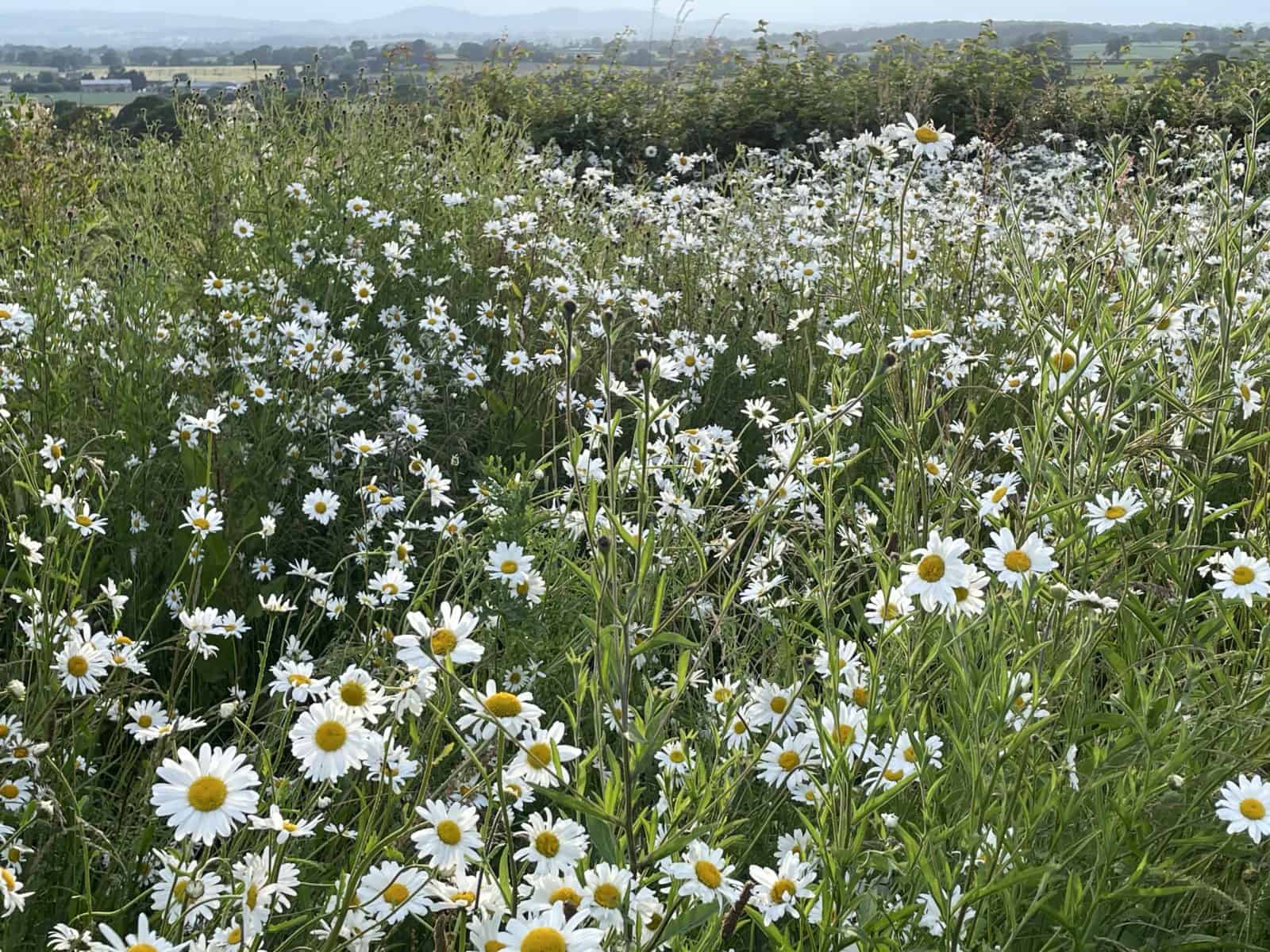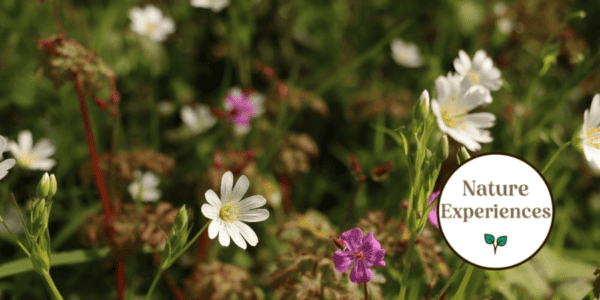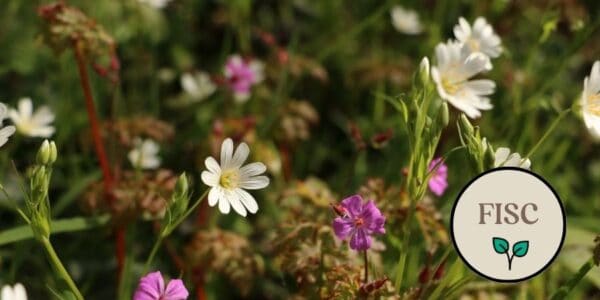This introductory folklore online course will look at the history, mythology, and significance of a variety of trees and common wildflower species.
Trees and wildflowers have been beneficial in terms of industry and medicine but also sacred to a variety of civilisations throughout time.
Dipping your toes into the colourful world of British botanical folklore. Their beauty and vibrancy has meant that trees and wildflowers have featured in history, culture and folklore since the earliest times. Due to the creative nature of folklore, this course includes a combination of self-guided reading and research to allow you to fully immerse yourself and build your own picture.
This is a 3-week course covering 3 topics, for which you will complete a variety of online resources and activities. Topics are concluded with an interactive Zoom workshop. Understand how our online courses are delivered .
Who Should Attend?
Nature enthusiasts, Students, Rangers, Keen folklorists
Knowledge Level
Introductory. Level descriptors can be found on the following webpage: Natural History Framework and Course Level Descriptors
Prior Knowledge
No existing knowledge, or experience is needed for this course. Just a willingness to explore and learn.
Recommended Devices
It is recommended that you access your course through a PC or laptop. Please be aware that there will be reduced functionality if you decide to access the course through a tablet or smartphone. The Field Studies Council is unable to email content directly to you.
What is covered in this course?
-
- Historical Uses of Trees
- Tree Folklore Stories
- Historical and Cultural Uses of Wildflowers
This course is a combination of two courses from 2021 Folklore of Trees and Discovering Wildflowers and Their Folklore.
By the end of the course, you will be able to:
-
- Identify some of the traditional and current uses for a range of common British tree species.
- Understand the folklore of five common British tree species.
- Identify the historical and cultural uses of British flowering plants.
- Share this knowledge with friends, family and fellow volunteers
This is a training course from the Field Studies Council, including online course materials, expert tuition and a flexible learning style. After attending this course, you may like to progress your learning about trees and wildflowers with further relevant courses, or branch out into other areas of the plant kingdom. The Field Studies Council offers both online and in person courses, so you can choose the learning style that suits you best.
Please note that bookings will close at 9 am on Monday 31st October to allow for all participants to be enrolled to the online platform – bookings will not be taken after this time.*
* Bookings will close sooner if course capacity is reached
The course gives you the opportunity to immerse yourself in a new subject and acquire novel skills. Our online portal gives you time to study at your own pace and fit the lessons around your own schedule.
- See the ‘Example Timetable’ and ‘What’s Included’ sections below for more information about this course.
- Each individual needs to place their own order to ensure we can sign you up to the learning platform and give you access to resources.
- Please email [email protected] if you have any questions.
Group Bookings Made Easy
If you have a group of 10 or more individuals wanting to complete one of our courses, our team are available to discuss your options – from discounts to private team courses.
- Discounted rates
- Privately run courses for your group
- Bespoke courses developed specifically for your needs
Tutor: Woody River
Woody River is the Director of Secret Landscapes, which offers guided walks on the themes of botany, foraging and literary heritage. With a BA (Hons) and MA in Literature and Creative Writing, Woody is also a qualified teacher who designs and teaches literature and botany courses for adults, as well as providing private tuition for international secondary school students. She has a particular interest in wildflowers and ferns, and loves observing different species of primate in their natural habitats.
Live Webinar Information
The webinars will take place on the following dates at 7:30 pm (GMT):
-
- Thursday 10th November 2022 at 7:30pm - 8:15pm
- Thursday 17th November 2022 at 7:30pm - 8:15pm
- Thursday 24th November 2022 at 7:30pm - 8:15pm
Please note - webinars will be recorded and uploaded to the virtual learning platform for learners unable to attend.
Example Timetable
Timetable
Week 1: Historical Uses of Trees
Self-study material available: 03/11/2022
Week 1 live webinar: 10/11/2021 at 7:30 pm
Week 2: Tree Folklore Stories
Self-study material available: 10/11/2021
Week 2 live webinar: 17/11/2021 at 7:30 pm
Week 3: Historical and cultural uses of flowering plants
Self-study material available: 17/11/2021
Week 3 live webinar: 24/11/2021 at 7:30 pm
The final deadline to complete any outstanding activities and self-study components is 08/12/2022
Time commitment: This course will require approximately 2-3 hours of your time each week. This includes covering course materials on our Moodle learning platform and the zoom session.
What's Included
The course has been carefully created to help you continue to build on your knowledge as the course progresses. With content crafted to the online Moodle Platform and bespoke to the Field Studies Council.
The course includes:
-
- 45-minute interactive Zoom workshops to connect with the tutor and other participants
- Personalised feedback on a marked assignment
- Expert tuition for which the Field Studies Council is renowned
- Activities to work on independently in advance of each Zoom workshop
- Tailored course completion certificate
Once registered, you will follow well-illustrated, user-friendly ’books’ to pick up knowledge. Quizzes and skill-checks will give you instant feedback on your learning. Forums give students the chance to interact with each other as well as a place to share work.
You can rest assured that the absolute best content from an expert in environmental education will be at your fingertips. In choosing a Field Studies Council course, you will be joining thousands of people who learn with us each year.
Reviews
-
★★★★★
I loved the discussion-based aspects to the live parts of the course, as opposed to rehashing what we had already covered in our pre-learning each week. It was great to have a few more facts and tidbits sprinkled in also.
-
★★★☆☆
I loved the discussion-based aspects to the live parts of the course, as opposed to rehashing what we had already covered in our pre-learning each week. It was great to have a few more facts and tidbits sprinkled in also.I found the course material interesting and easy to follow. I am an illustrator, hoping to work further within the field of natural history illustration. The course provided a good basis of knowledge and inspired me to keep studying. It provided lots of potential areas of interest for my personal illustration projects.
-
★★★★★
Amazing subject, knowledgeable tutor, SO INTERESTING. Absoluted loved it. Something I have always been interesting and this course has been a wonderful structured introduction and foundation that enables you get to grips with a wide subject. Would like a more in-depth version for further study.
-
★★★★★
The last session on the 10 wildflowers was very interesting and helpful. It was good just to focus on 10, as it is easy to get distracted when looking at a whole book.
-
★★★★★
The organisation of the course has been excellent. I found it easy to log on, the set up with the tasks was easy to navigate, the reminder email prior t the zoom meeting with the link . All very helpful.
Thankyou -
★★★★☆
The Wildflower section - very clearly laid out; the balance of information was relevant to the course title and upheld my expectation.
-
★★★★☆
I really liked finding out about the folklore of plants and trees I see every day, as it makes me feel more connected to them.
Before You Attend
Accessing Your Course
- Once you sign up you’ll receive an email at least 24 hours in advance of the course opening with details of how to access our easy-to-use platform, Moodle.
- Moodle can be accessed through a browser or an app.
- Webinars are via Zoom so you won’t need any new software to attend
Recommended Devices
It is recommended that you access your course through a PC or laptop. Please be aware that there will be reduced functionality if you decide to access the course through a tablet or smartphone. The Field Studies Council is unable to email content directly to you.
Sorry this course booking is closed



